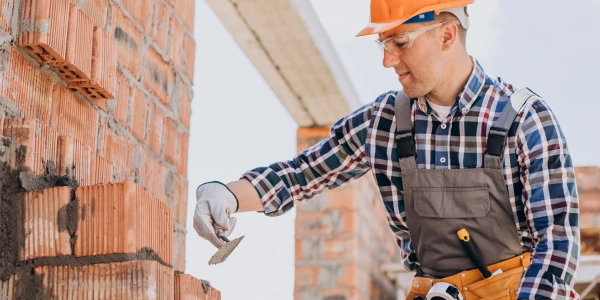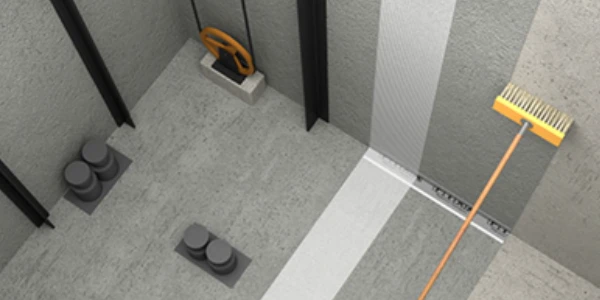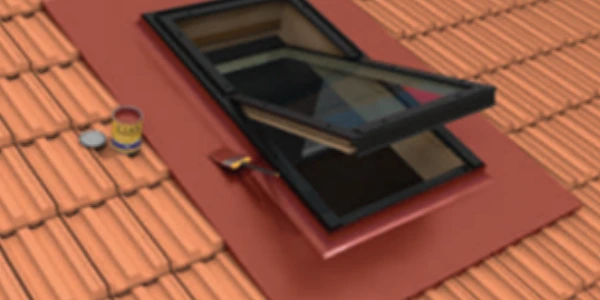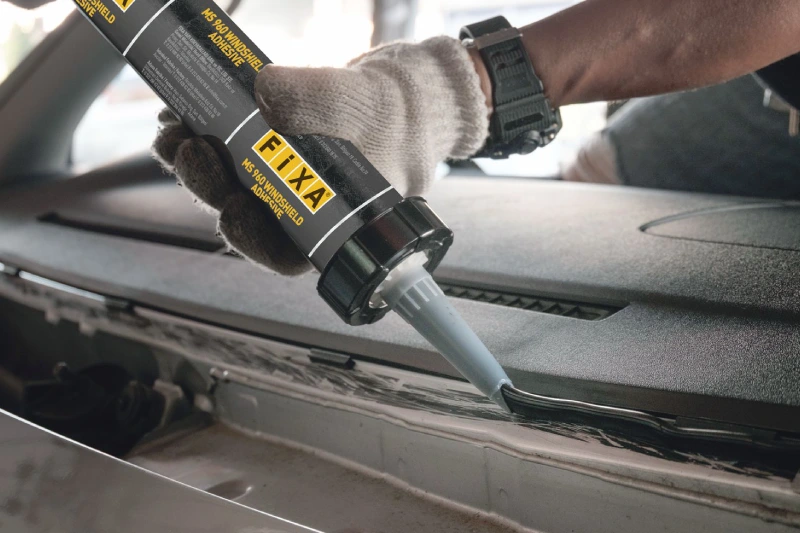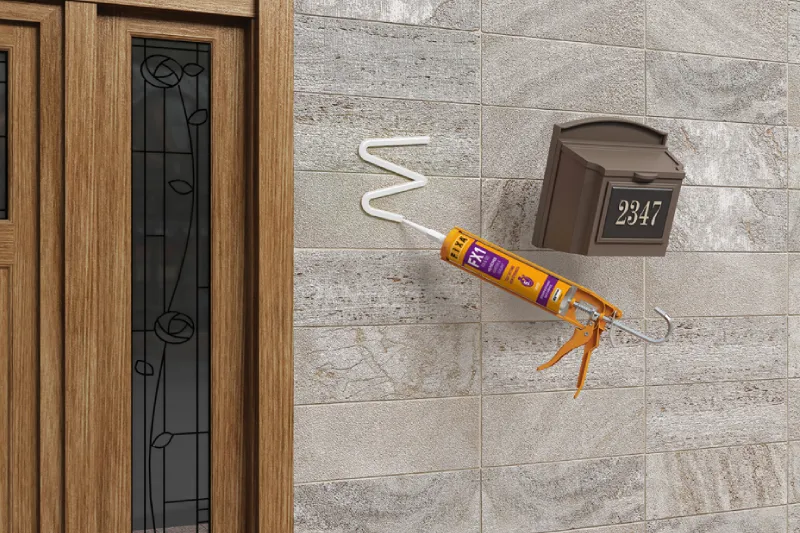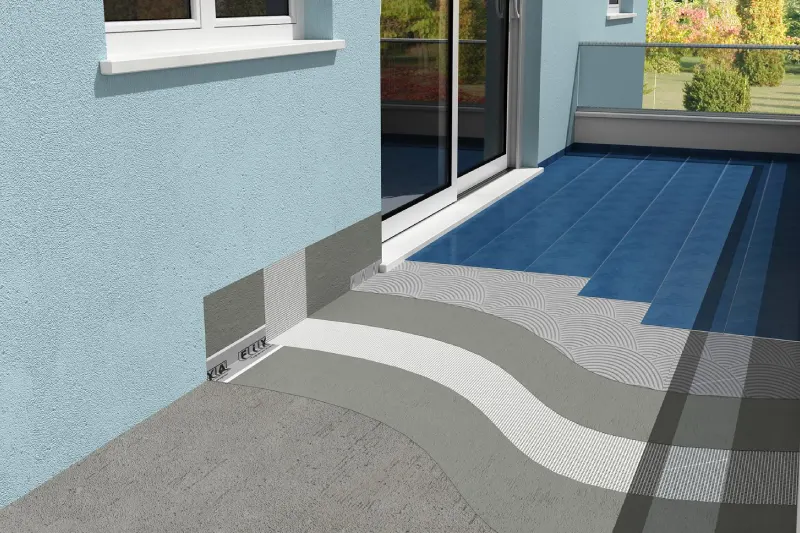Strength and Flexibility in Industrial Adhesives
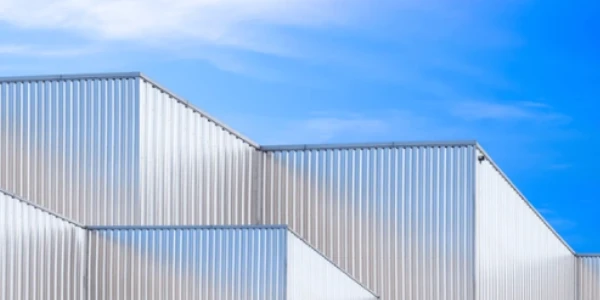
Today, industrial adhesives have become one of the most important solutions for securely and durably bonding different materials such as metal, iron, and glass. Compared to traditional methods like welding, screwing, and riveting, adhesives offer lighter, more flexible, and longer-lasting connections, making them a preferred choice across various industries. In particular, industrial adhesives used in sectors like automotive, construction, caravan, and container manufacturing must demonstrate high resistance to vibrations, impacts, and temperature fluctuations.
Polymera MS 965 is a high-strength, flexible industrial adhesive developed based on MS Polymer technology to meet these requirements. With its ability to be applied without a primer, eco-friendly formula free of solvents and isocyanates, wide temperature tolerance, and superior bonding strength, it provides excellent results on metal-metal, glass-metal, and other surfaces. This article will thoroughly cover the functions of industrial adhesives, the bonding processes for metal and glass, the selection of the right product, and application tips.

What are Industrial Adhesives?
Industrial adhesives are specialized adhesives used to permanently and strongly bond different materials. By providing strong adhesion on surfaces such as metal, glass, plastic, composites, and rubber, they both accelerate production processes and offer an alternative to traditional mechanical connections. Especially preferred in heavy industries, automotive, construction, and manufacturing sectors, they provide a lighter and more durable connection compared to processes like welding and screwing.
When selecting industrial adhesives, factors such as material type, mechanical durability, flexibility, and resistance to environmental factors are critical. MS Polymer-based adhesives like Polymera MS 965, with their high modulus and elastic properties, offer maximum performance in various industrial applications, creating strong and long-lasting bonds.

What Are Industrial Adhesives Used For?
Industrial adhesives are specially formulated adhesives designed to securely bond metal, glass, plastic, and other surfaces. Compared to traditional mechanical fastening methods, they provide lighter, more flexible, and impact-resistant connections. They offer a reliable solution for structures exposed to vibrations, high temperatures, or outdoor conditions.
These adhesives are widely used in automotive manufacturing, body assembly, container production, and industrial machinery manufacturing. Polymera MS 965, with its high strength and superior sealing properties, provides a dependable bond—especially at metal joints—enhancing structural integrity.

Advantages of Solvent-Free Industrial Adhesives
Traditional adhesives containing solvents can pose risks to both human health and the environment due to their chemical contents. During curing, they release harmful gases that may require ventilation in the workplace. Additionally, some solvent-based adhesives may experience volume loss over time, leading to weakened bond points.
Solvent-free industrial adhesives like Polymera MS 965 offer a safer option with eco-friendly formulas that are not harmful to human health. With low VOC (Volatile Organic Compounds) values, Polymera MS 965 ensures no negative impact on the health of individuals in enclosed spaces. Its solvent-free structure also prevents unpleasant odors during application, providing a safe and comfortable working environment. Furthermore, solvent-free adhesives cure without any volume loss, creating long-lasting and strong bonds.
Advantages of Isocyanate-Free Industrial Adhesives
Isocyanates, a chemical component widely used in the production of various industrial and commercial materials, are toxic chemicals found in some insulation materials. Isocyanates are highly reactive and have low molecular weight. They are commonly used in the production of flexible and rigid foams, paints, varnishes, polishes, some insulation materials, and certain types of synthetic rubber.
Many insulation materials contain isocyanate compounds, which can be absorbed by the skin during application and irritate the outer layer of the skin. Since isocyanates can irritate mucous membranes and skin, they can harm the respiratory system. Prolonged exposure to isocyanates may lead to sensitivity, causing allergic reactions in individuals.
The best solution to avoid the negative effects of isocyanates is to choose insulation materials and adhesives that are free of isocyanates and solvents, creating healthier and more sustainable environments.
Both designers and consumers are increasingly inclined to select products that offer good architectural performance and high quality. MS Polymer-based materials, which are considered healthy products, are next-generation hybrid polymers with high technological innovation. To minimize harmful effects in building materials, healthy products should be selected that either contain no toxic substances or are formulated at safe levels for users, thereby ensuring the creation of ecological internal environments in buildings.
Features of Polymera MS 965 Industrial Adhesive
Polymera MS 965 is a hybrid adhesive based on MS Polymer technology, single-component, and solvent-free. It offers excellent performance on metal, glass, plastic, and other industrial surfaces due to its high bonding strength and elastic properties. Its solvent and isocyanate-free formula ensures environmentally friendly use, while its low VOC levels make it safe for human health.
This product maintains its elasticity in a temperature range of -40°C to +80°C, demonstrating exceptional resistance to different weather conditions. It absorbs vibrations, making it ideal for creating secure connections in the automotive and heavy industries. Its curing process occurs without any volume loss, ensuring it maintains strength and excellent bonding performance over the long term. Polymera MS 965 offers a powerful, safe adhesive solution for industrial production, providing both sealing and durability.
How to Use Metal Adhesives
For securely bonding metal surfaces, selecting the right adhesive and carefully following the application process is essential. Industrial metal adhesives like Polymera MS 965 create strong bonds with high adhesion strength and elasticity, making them ideal for metal-metal connections. Commonly used in automotive, industrial, bodywork, and container production, these adhesives offer a lighter, more flexible, and impact-resistant bond compared to mechanical connection methods.
When using metal adhesives, surface preparation, correct adhesive application, and proper curing time must be observed. Improper application or insufficient cleaning of the surface can negatively affect bonding strength. Polymera MS 965 provides an easy and reliable metal adhesive solution with its primerless application and volume-loss-free curing.
Metal Surface Adhesive Application Steps
Before applying metal adhesives, the surface must be clean and smooth. Dirt, oil, rust, or old adhesive residues can prevent the new adhesive from bonding effectively. Therefore, the surface should be cleaned with appropriate cleaners and sanded to smooth it if necessary. Although Polymera MS 965 offers primerless bonding, ensuring the surface is thoroughly cleaned yields the best results.
During application, the adhesive should be evenly applied to the surface using a sausage gun, and the parts to be bonded should be held in place properly. The parts should not be moved during the curing time to ensure maximum bonding performance. Polymera MS 965 fully cures within 24 hours, providing a strong, long-lasting connection. Its high modulus structure makes it resistant to vibrations and impacts, making it ideal for automotive and heavy industrial applications.

Primerless Application with Polymera MS 965
Most traditional metal adhesives require a primer to achieve maximum adhesion on metal surfaces, but Polymera MS 965 offers the advantage of primerless application. This feature accelerates the application process, reduces additional costs, and saves time. It is particularly beneficial for industrial businesses engaged in mass production. Polymera MS 965 forms a strong and flexible bond when applied directly to metal-metal, metal-glass, and other surfaces.
Primerless application allows for a fast and practical process, enabling the adhesive to be easily squeezed and spread directly onto the metal surface. This characteristic provides a significant advantage for companies in the automotive, bodywork, and metal manufacturing sectors, optimizing both labor and costs. Polymera MS 965’s high modulus structure delivers both flexibility and excellent adhesion strength, ensuring that bonded surfaces remain stable for a long time.
Suitability and Durability in Bonding Different Metal Types
Not all metal surfaces have the same properties, and the surface compatibility of the adhesive used to bond different metals is crucial. Polymera MS 965 offers excellent adhesion to a wide range of metal types, including steel, aluminum, stainless steel, and galvanized metals. It provides strong bonding to the surface, ensuring long-term durability and making it safe for use in heavy industrial applications.
Additionally, Polymera MS 965 maintains its flexibility between -40°C and +80°C, offering superior performance under varying temperature conditions, making it ideal for metal components used outdoors. Its resistance to UV rays and chemicals ensures that its adhesive strength does not decrease over time. These features make it a reliable metal adhesive for both indoor and outdoor applications.
Make the Right Choice for Strong and Durable Connections!
Need a high-strength adhesive to securely bond metals, glass, and other surfaces? Polymera MS 965 offers a reliable solution for industrial bonding with its superior adhesion, flexibility, and solvent-free formula. Discover Polymera MS 965 for strong, flexible, and long-lasting connections today!
What to Consider When Choosing Iron Adhesive
Choosing the right iron adhesive is essential for ensuring the durability and longevity of the connection. Using the wrong adhesive can lead to loosening, cracking, or loss of seal integrity over time. Particularly in industrial applications, adhesives that offer high strength and flexibility should be preferred. Polymera MS 965 is a flexible and durable adhesive developed for strong bonding on metal and iron surfaces, free from solvents and isocyanates.
When bonding iron surfaces, environmental factors, mechanical stress, and temperature fluctuations must be considered. Polymera MS 965, with its ability to maintain elasticity between -40°C and +80°C, offers exceptional resistance to temperature variations. Additionally, its high modulus structure provides strong and flexible bonds on iron surfaces, preventing deformation caused by vibrations and impact forces.
Why High Modulus and Strong Adhesion Are Important in Industrial Adhesives
For rigid surfaces like iron, the high modulus property of an adhesive is crucial to prevent the bonded surface from loosening or detaching over time. Polymera MS 965, with its high modulus, can tolerate movements at the bonding points and create a durable connection over the long term. This feature is especially important for providing reliable and long-lasting adhesion in heavy industries, automotive, and construction sectors.
Strong adhesion not only enhances the physical strength of the connection but also helps protect metal surfaces by providing a seal against water, dust, and chemicals. While traditional adhesives may experience volume loss over time, Polymera MS 965 maintains its volume and provides high-strength bonding for an extended period. As a result, it offers superior performance against both mechanical and environmental factors on metal surfaces.

How Vibration Absorption and Impact Resistance Benefit Industrial Adhesives
Iron adhesives must have high vibration absorption and impact resistance, as adhesive surfaces in heavy industrial applications and the automotive industry are constantly exposed to vibrations and mechanical impacts. Polymera MS 965, with its elastic and flexible structure, absorbs these vibrations and sudden load changes, ensuring the stability of the bond.
Impact resistance is especially crucial for moving parts or structures carrying heavy loads. Polymera MS 965, with its strong adhesion and flexibility, balances the forces at the bonding points and prevents potential breakages. This feature is especially advantageous for metal connections in automotive, caravan, and bodywork assembly.
The Right Curing Time for Long-Lasting Industrial Adhesive Connections
For iron adhesives to perform at their full potential, the proper curing time is essential. Polymera MS 965 ensures maximum bonding strength within 24 hours. During this process, it is important to avoid moving the surfaces to allow the adhesive to fully set.
Curing time may vary depending on ambient temperature and humidity levels. Polymera MS 965 adapts to environmental conditions, providing excellent bonding in both hot and cold climates. After fully curing, it maintains its durability without volume loss and ensures a secure bond for many years. Therefore, when selecting iron adhesives, curing time and compatibility with environmental factors should be key considerations.
Next-Generation Technology in Industrial Adhesives: Polymera MS 965
Polymera MS 965 provides maximum performance on iron, metal, and glass surfaces, offering excellent bonding strength and sealing properties in all conditions. With vibration absorption, impact resistance, and primerless application capabilities, it adds speed and durability to your projects.
Explore the superior features of Polymera MS 965 and push the boundaries of adhesive performance! You can also explore other MS Polymer-based adhesives to make the right choice for your needs.
What to Consider When Bonding Glass and Metal Surfaces
Bonding glass and metal surfaces requires careful application due to their different material properties. The smooth, hard surface of glass and the varying expansion coefficients of metal necessitate an adhesive that is both strong and elastic. Polymera MS 965 is a high-strength, flexible industrial adhesive specifically developed to strengthen the bond between glass and metal.
One of the key factors in this process is the proper surface preparation before application. If the glass and metal surfaces are not adequately cleaned, or if there are residues of oil, dust, or dirt, it can negatively affect adhesion performance. When applied with proper surface preparation, Polymera MS 965 cures without volume loss, providing a strong and long-lasting bond.
Surface Preparations for Bonding Glass and Metal Surfaces
Surface preparation is a critical step in enhancing the adhesive strength when bonding glass and metal. Glass surfaces, which are typically smooth, must be cleaned thoroughly with appropriate cleaners to remove oil and dirt. Metal surfaces may contain rust or oxidation; therefore, light sanding may be necessary to ensure the surface is suitable for bonding.
Polymera MS 965 is a primerless adhesive that offers high adhesion performance. However, in some cases, based on the condition of the glass or metal surface, a primer may be recommended. After applying the adhesive, the glass and metal surfaces must be correctly positioned and left undisturbed during the curing process. This is a crucial step to ensure a strong, long-lasting bond.
High-Strength Bonding Power of Polymera MS 965
When bonding materials such as glass and metal, using a high-strength adhesive is necessary. Polymera MS 965 provides a robust connection between glass and metal surfaces, and its flexible structure allows it to adapt to expansion and contraction caused by temperature changes, preventing the adhesive from breaking or cracking.
This adhesive retains its elasticity between -40°C and +80°C, offering exceptional resistance to various climate conditions. Additionally, its eco-friendly formula, free of solvents and isocyanates, ensures it is safe for both human health and the work environment. With these properties, Polymera MS 965 is the ideal solution for achieving high-strength, long-lasting bonds in glass-metal bonding applications.
Sealing and Elasticity Features in Industrial Adhesives
In glass-metal bonding processes, it’s not only essential to ensure a strong bond but also to provide sealing capabilities. In automotive, construction, and industrial applications, it’s crucial to prevent water and air leakage. Polymera MS 965 ensures excellent sealing on the applied surfaces, providing additional protection against external elements.
Elasticity is another important feature for the long-term performance of an adhesive. Polymera MS 965 offers flexibility and rigidity, enabling it to resist mechanical stress. With its vibration-absorbing capacity at the bonding points, it adapts to the different expansion rates of glass and metal, ensuring that the bond remains stable over time. These features make Polymera MS 965 a reliable and durable solution for glass-metal bonding applications.
For detailed information and to request a quote about POLYMERA MS 965 MS Polymer-Based Industrial Adhesive, you can contact us at 0212 690 92 92 or via email at info@fixaco.uk.
Share!
Other Blog Posts

